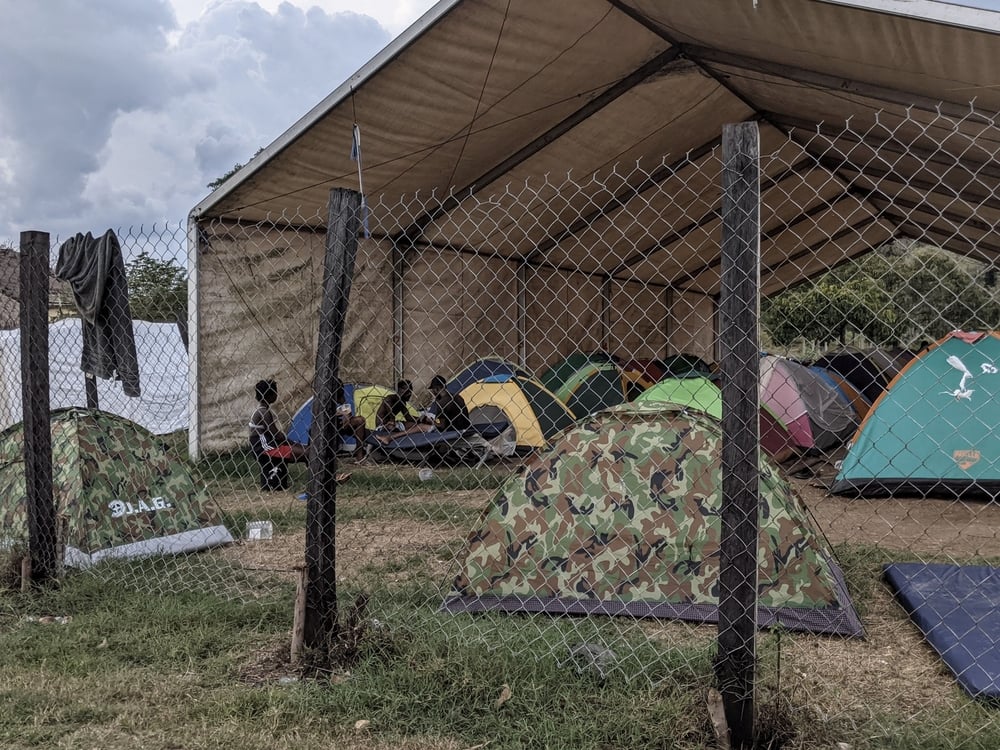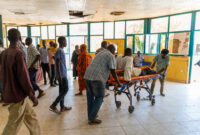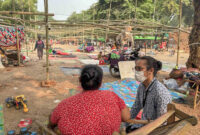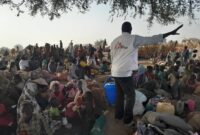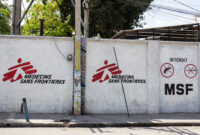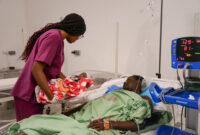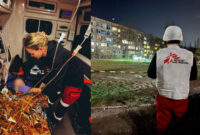MSF denounces the deterioration of reception conditions and a lack of emergency medical care for migrants arriving in Panama
MSF repeats its calls for safe routes between Colombia and Panama and urgent medical care for victims of sexual violence at the first point of arrival.
The already dire reception conditions for migrants arriving in the province of Darién, Panama, are deteriorating, Doctors Without Borders/Médecins Sans Frontières (MSF) said today. MSF provides medical and mental health care at the San Vicente Migrant Reception Centre and has witnessed huge gaps in protection, medical care, and basic emergency services for the approximately 300 migrants that arrive at the centre each day.
“The conditions for receiving migrants are inadequate,” said Rabia Ben Ali, an MSF coordinator in Panama. “Every day, hundreds of people arrive in Canaán Membrillo – the first village they arrive at in Panama after crossing the dangerous Darién Gap – but they do not receive any medical care. They are then taken three hours by boat to San Vicente where services are not sufficient and barely meets international standards.”
Medical conditions
Last year, when migrants arrived in the town of Bajo Chiquito – where MSF and the Ministry of Health provided medical care – they were transferred to the Migrant Reception Centres of Lajas Blancas and San Vicente. Now, the area of Canaán Membrillo has become the gateway to Panama for most migrants, but there is no care available for victims of sexual violence or patients suffering from serious medical problems. When they arrive it the San Vicente Migrant Reception Centre, their medical condition has often worsened, and it is often too late for victims of sexual violence to receive some preventative treatments, such as prophylaxis to prevent infections, like HIV, or emergency contraception to prevent pregnancy – both which should be administered within 72 hours of the rape.
In recent weeks, the number of people who have not received timely care within 72 hours after sexual violence has increased. The Panamanian authorities should urgently put in place mechanisms to detect victims of sexual violence in Canaán Membrillo and establish effective protection mechanisms to prevent attacks on migrants along the dangerous route between Colombia and Panama, MSF said.
“The conditions of the San Vicente facilities must also be improved,” said Ben Ali. “Shelters are not generally available and children and pregnant women sleep on the floor. Sanitary conditions are poor.” These conditions affect both the physical and mental health of migrants.

Being left in the jungle
John left South Africa with his family and began his journey north in Necoclí, Colombia with a group of people of different nationalities. A “guide” then charged him $1000 US and made them cross the jungle to the border with Panama. There they were met by other armed guides who made them continue their journey through the Darién Gap to a camp where all their belongings were stolen. “They left us without clothes, food, money. They took our mobile phones, everything. They left us like animals to the mercy of the jungle.”
“On that trip many families were separated. I lost my daughters. We were suffering physically, morally and spiritually. We had nothing except for our wounds. I was crying for days. I had no idea where they were. The medical condition of the people who leave the mountain is terrible. We all need medical care.”
In April, MSF teams treated 78 patients a day on average, mostly for skin diseases and body aches. Twenty per cent of the cases were related to diarrhoea, respiratory infections and digestive diseases.
How MSF is responding
MSF’s mental health team treated an average of six patients daily for conditions such as acute stress, depressive episodes, anxiety, and grief from the death of family members along the journey, including drowning. These conditions were mostly triggered by experiences that occurred while crossing the dangerous Darién Gap, where MSF has documented sexual violence, robberies and tragic accidents resulting from the treacherous terrain.
Gabriela, a 40-year-old Venezuelan woman, shared the following about the journey they faced before reaching San Vicente. “Don’t dare to cross here, and if you do, just know that there are risks of rape, kidnapping and robbery. You risk death. If you have children, do not do it because you are exposing your children to death. They robbed us. Some people were stripped naked, and we were forced to watch. They took all our money. They told us that we would not be raped if we complied with the orders they were giving us. There is no mercy, no thought. There, life is worth nothing, not even [the lives] of children.”
Despite there being a reduction in the number of migrants crossing the Darién in January and February, it has increased in March and April, as have the cases of robbery and sexual violence. In 2022, from January to the first week of May, MSF treated 89 cases of sexual violence that occurred whilst crossing the Darién jungle. In April to December 2021, 328 cases were treated.
For this reason, MSF repeats its call for a safe route, in addition to emergency medical care in Canáan Membrillo and an improvement in reception conditions at the San Vicente MRC for migrants who cross the Darién jungle.
